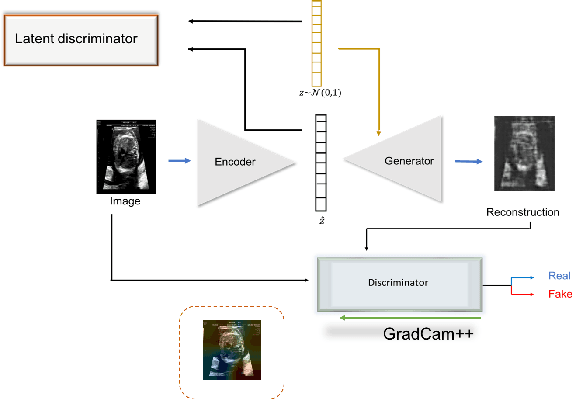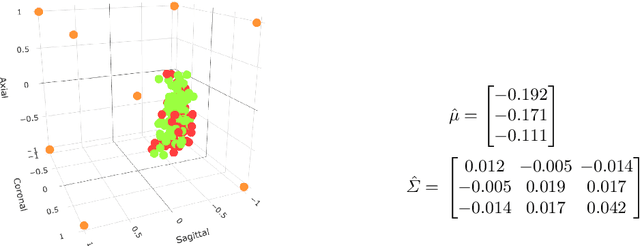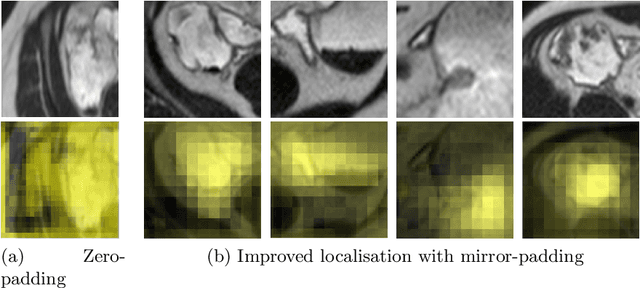Elisa Chotzoglou
Learning normal appearance for fetal anomaly screening: Application to the unsupervised detection of Hypoplastic Left Heart Syndrome
Nov 15, 2020



Abstract:Congenital heart disease is considered as one the most common groups of congenital malformations which affects $6-11$ per $1000$ newborns. In this work, an automated framework for detection of cardiac anomalies during ultrasound screening is proposed and evaluated on the example of Hypoplastic Left Heart Syndrome (HLHS), a sub-category of congenital heart disease. We propose an unsupervised approach that learns healthy anatomy exclusively from clinically confirmed normal control patients. We evaluate a number of known anomaly detection frameworks together with a new model architecture based on the $\alpha$-GAN network and find evidence that the proposed model performs significantly better than the state-of-the-art in image-based anomaly detection, yielding average $0.81$ AUC \emph{and} a better robustness towards initialisation compared to previous works.
Automatic Detection of Bowel Disease with Residual Networks
Aug 31, 2019



Abstract:Crohn's disease, one of two inflammatory bowel diseases (IBD), affects 200,000 people in the UK alone, or roughly one in every 500. We explore the feasibility of deep learning algorithms for identification of terminal ileal Crohn's disease in Magnetic Resonance Enterography images on a small dataset. We show that they provide comparable performance to the current clinical standard, the MaRIA score, while requiring only a fraction of the preparation and inference time. Moreover, bowels are subject to high variation between individuals due to the complex and free-moving anatomy. Thus we also explore the effect of difficulty of the classification at hand on performance. Finally, we employ soft attention mechanisms to amplify salient local features and add interpretability.
 Add to Chrome
Add to Chrome Add to Firefox
Add to Firefox Add to Edge
Add to Edge